On 20 June 2025, the interdisciplinary symposium entitled “Interdisciplinary Symposium on One Health and PFAS: an Integrated Approach to Human, Animal, and Environmental Health” took place at the Representation Hall of the University Hospital of Alessandria (AOU AL), Italy. The event was organized within the framework of the SCENARIOS project, funded by the Horizon 2020 Programme – Action 8.1 “Zero Pollution Ambition”, and promoted by the Department of Integrated Activities for Research and Innovation (DAIRI) in collaboration with the University of Eastern Piedmont (UPO) and the Piedmont Region.
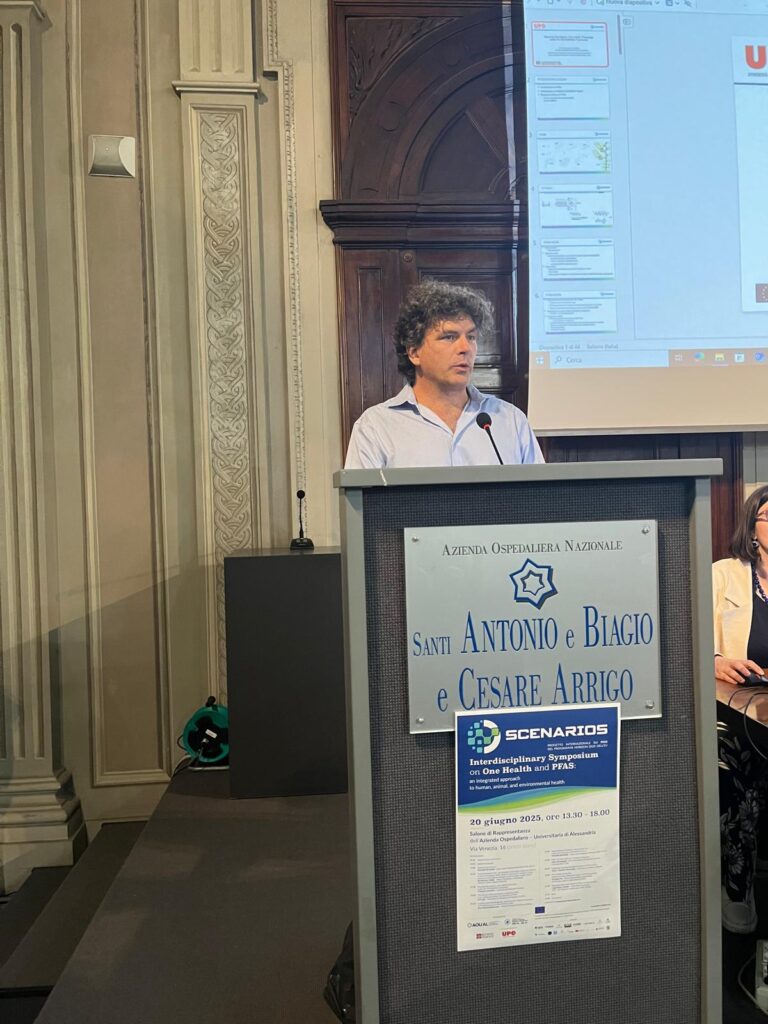
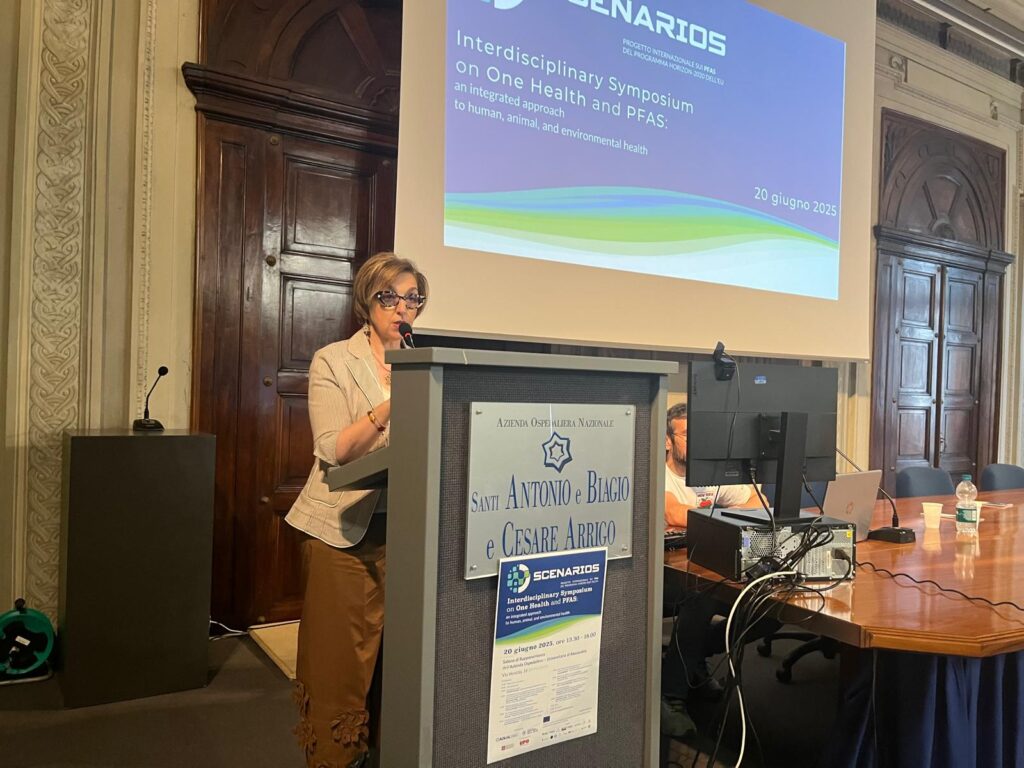
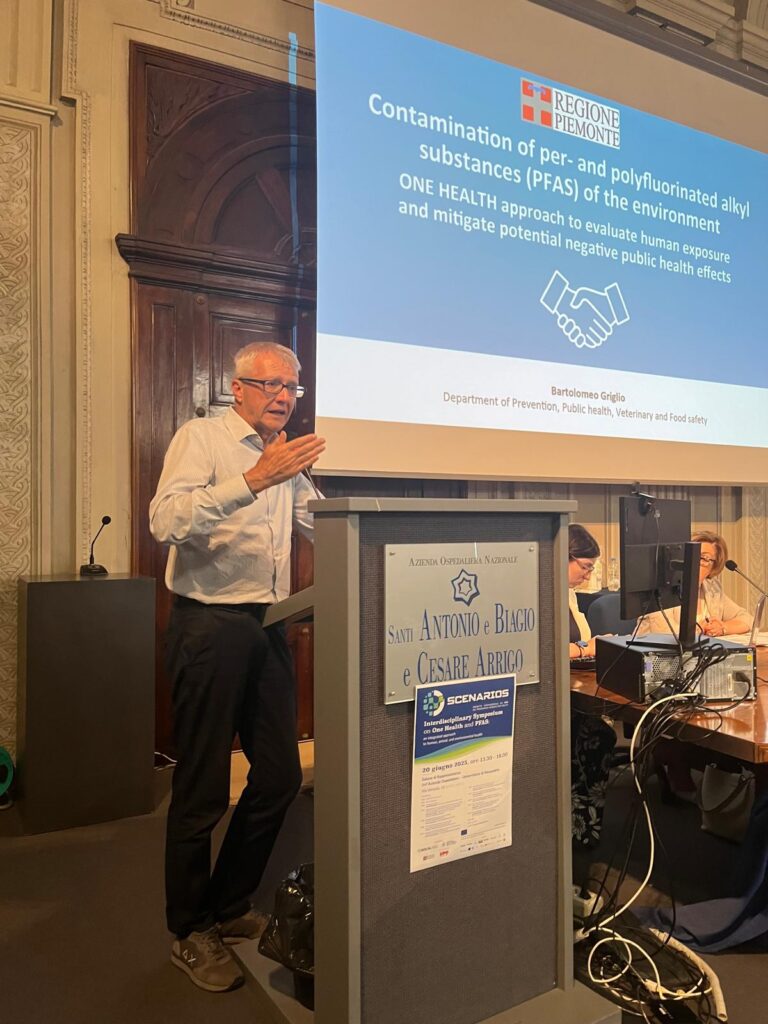
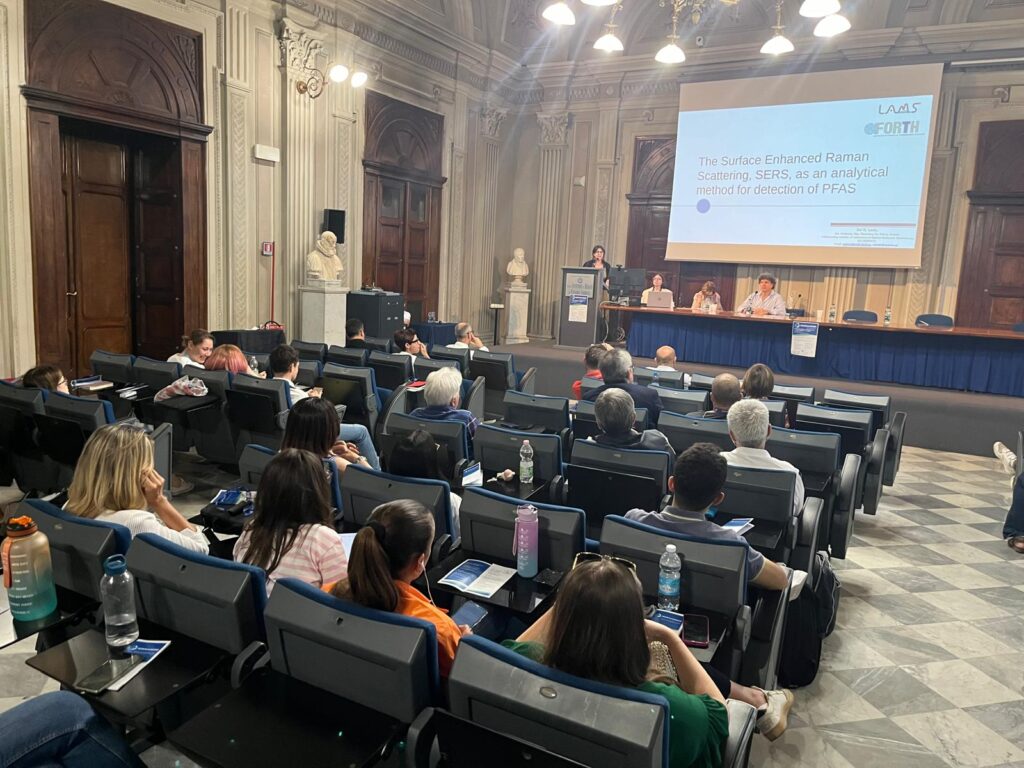
The symposium gathered researchers, clinicians, institutional representatives, and public health professionals to discuss the challenges posed by per- and polyfluoroalkyl substances (PFAS) and the need for coordinated responses based on the One Health approach, which integrates human, animal, and environmental health. Among authorities and experts that attended the event and present results we had UPO rector Prof. Menico Rizzi, Alessandria Hospital general director Dr. Walter Alpe, Alessandria’s Mayor Dr. Giorgio Abonante, Dr. Bartolomeo Griglio, head of epidemiology at the Regione Piamonte, Dr. Luigi Castello from UPO leader of the DRAPPO project for the clinical investigations on PFAS effects in the Spinetta Marengo population.After the institutional opening, the scientific session was introduced by the scientific leadership of the DAIRI Environmental Pathology Study Center. Presentations were delivered by speakers from universities, research institutions, and healthcare organizations engaged in the SCENARIOS project or in ongoing activities related to PFAS monitoring, exposure assessment, and mitigation.
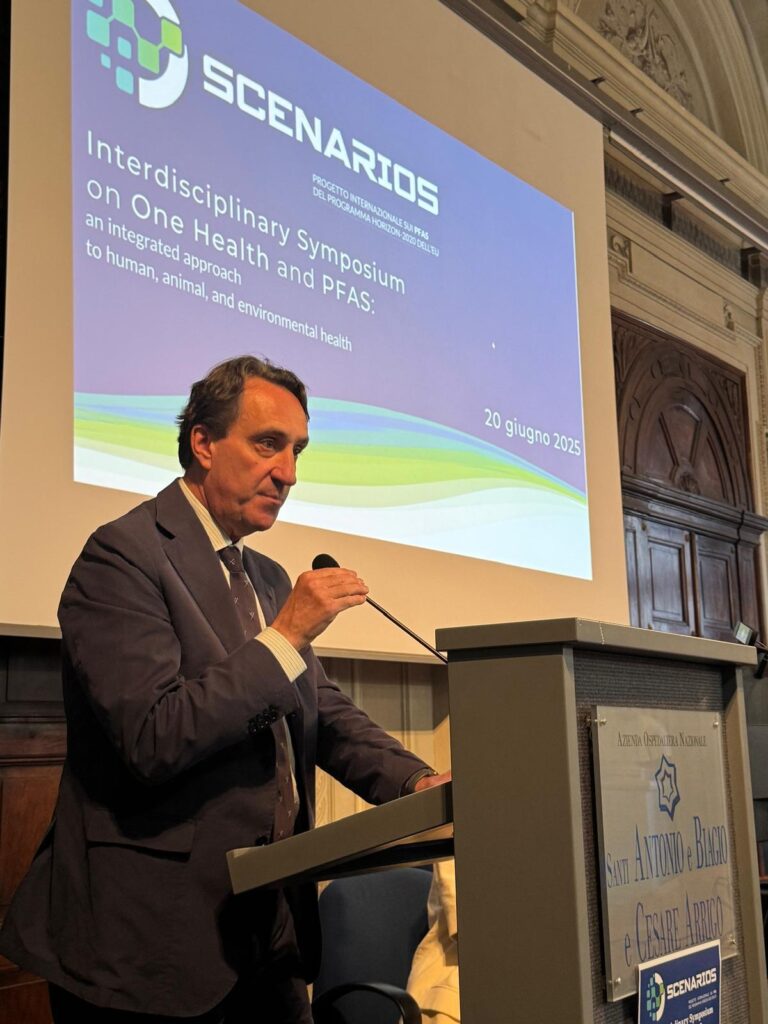
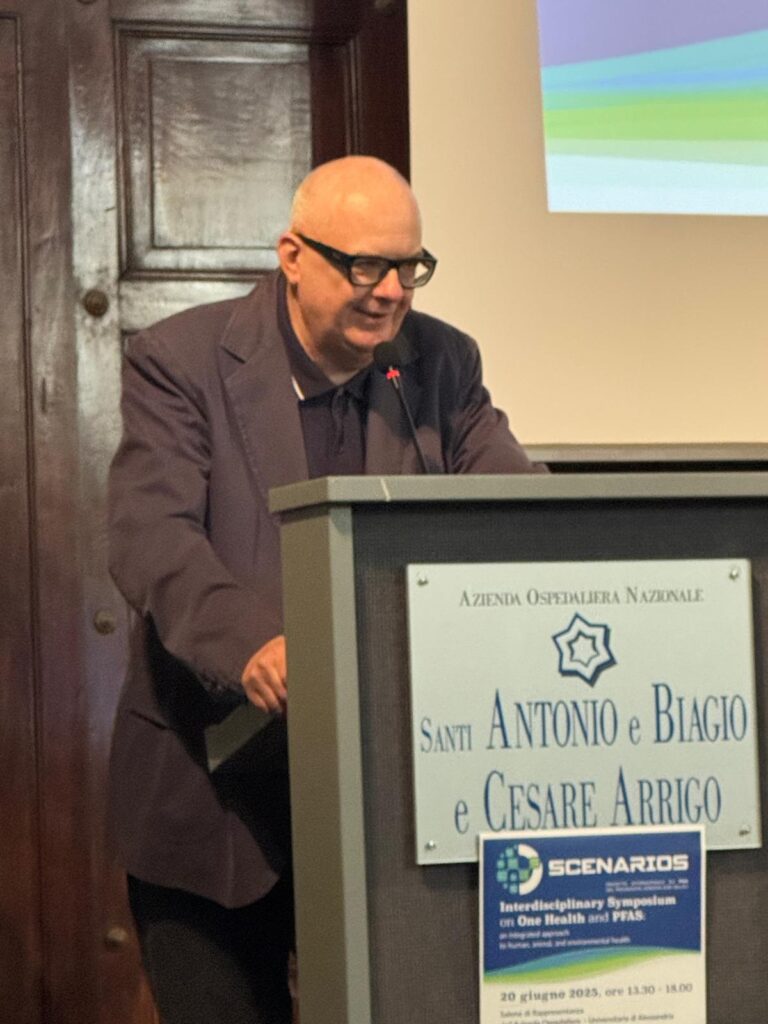
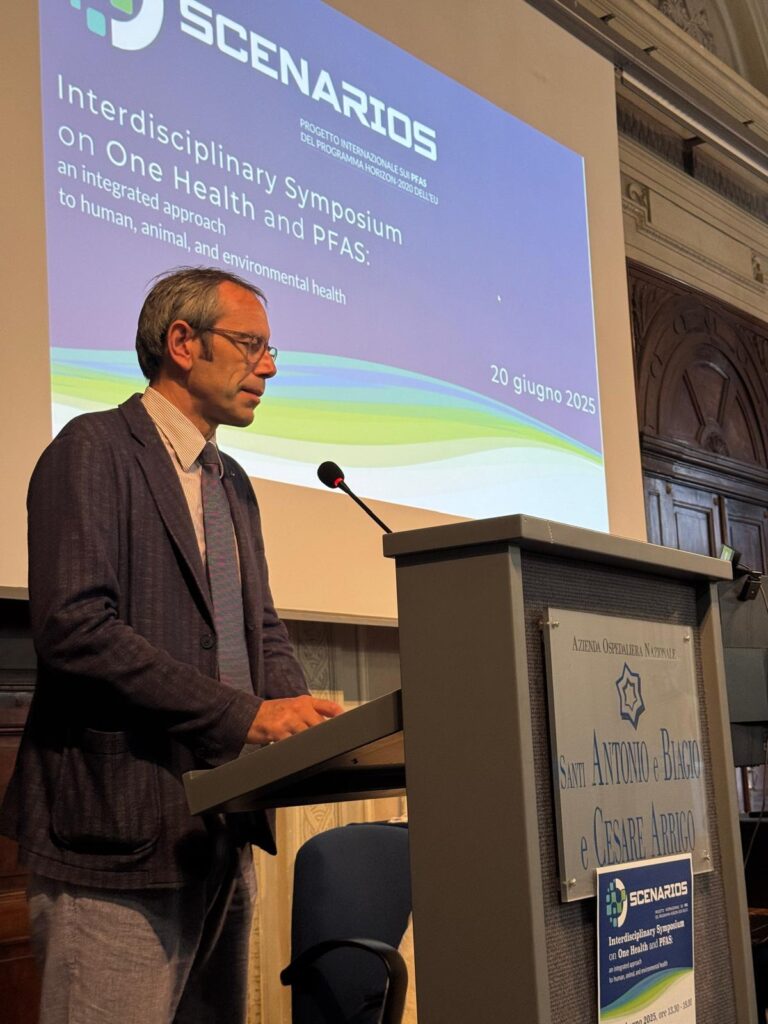
The programme covered multiple dimensions of PFAS research: exposure and risk assessment, analytical technologies, toxicological mechanisms, and public health implications, with particular attention to both European initiatives and local field studies. Updates were also provided on the epidemiological study currently underway in Alessandria, and on regional biomonitoring actions in human and animal populations. The final discussion session offered a space for interdisciplinary exchange, reinforcing cooperation between scientific, clinical, and institutional actors. The symposium reaffirmed the relevance of the One Health framework in addressing complex environmental exposures, and emphasized the strategic role of international research networks in developing evidence-based, territorially anchored responses. The event was well attended and supported by a simultaneous interpretation service, ensuring full accessibility of content to a diverse, international audience.
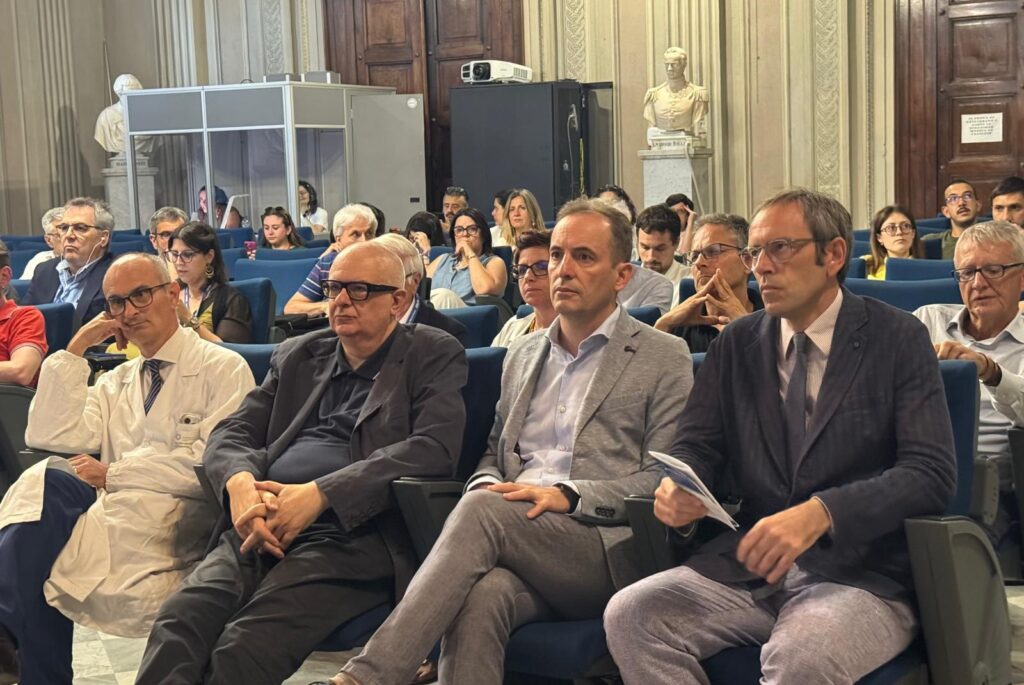
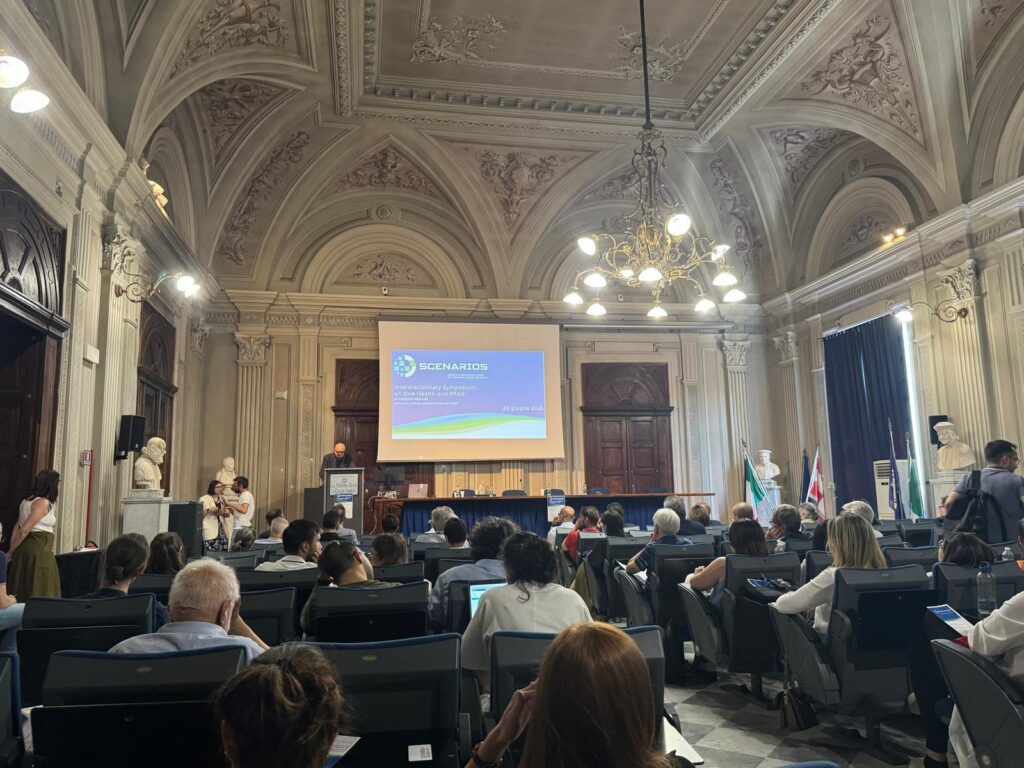
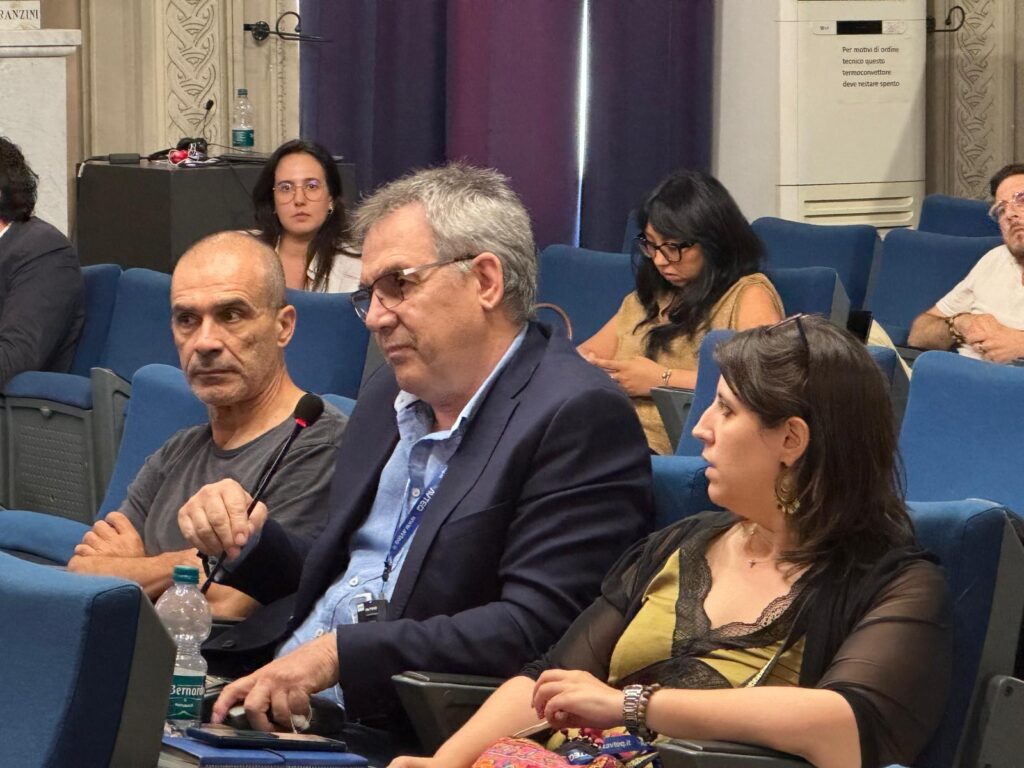
It was an important moment to deepen the SCENARIOS project and to frame the issue of PFAS within a One Health perspective. We believe this integrated approach is essential to address the complexity of the challenge and to foster effective, cross-sectoral collaboration.
Stay tuned for more events where the results from the project are going to be presented, such as in RemTech in Ferrara next September.
